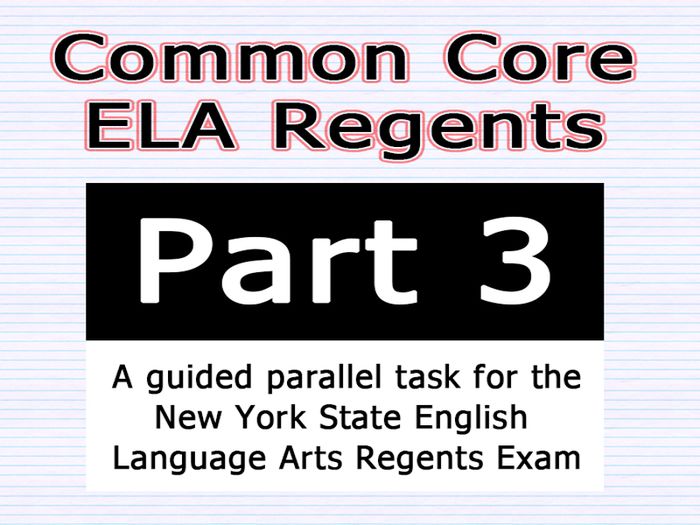

their denotation (literal definition ex: house ), then use diction. Restate your claim, summarize your main points, and connect your argument to the reader.ĭiction: Make sure you understand diction before walking into the Regents Exam because this literary technique comes in handy! If you can find three examples of specific words or phrases that develop the central idea of the passage because of their connotation (word’s emotional meaning ex: home ) vs.In order to earn a 6 on your Part 2 Essay, you must include and defend against a counter argument.(E) = Explain how the quote supports your claim statement.(C) = Cite the quote or paraphrased evidence as directed (i.e.(I) = Introduce the quote by providing information needed to understand the evidence out of context.Each body paragraph should begin with a topic sentence that introduces the main idea being supported.Main Body Paragraphs and Citing Textual Evidence HINT: your claim & main points must be supported using textual evidence from at least 3 out of the 4 provided texts!.Voting should be mandatory because it supports democracy and each elected politician would be guaranteed to have been elected by the true majority.Make it specific and defendable by including your main points.Example of a not-so-great claim: Voting should be mandatory.Do NOT have a claim that answers the topic question with a simple “yes” or “no”:.Have a claim that is complex (different from other claims) Point of View - 1st person gives the reader an inside look into the experience being told through the passage

* Tone & Diction are favorites to use for Part 3 because they are always going to be present!!! R hetorical Devices : Ethos, Logos or Pathos or Diction * (author’s word choice).Literary Techniques: Tone * (author’s attitude) or Imagery (sensory descriptions).Literary Elements: Characterization (fiction) & Point of View (non-fiction, 1st person).Here are some suggestions to help you narrow down your options during the Regents Exam: Part 3 - Writing Analysis Short Response (2-3 paragraphs)ĭetailed Instructions and Organizer for Part 3 (Link)Ĭhoosing which one literary or rhetorical device varies depending on the given text. Phrases like “My claim is…” and “I think…” should be avoided.ĭetailed Instructions and Organizer for Part 2 (Link) General Rule: Do not use “I”, “me”, or “my” in academic writing.


 0 kommentar(er)
0 kommentar(er)
